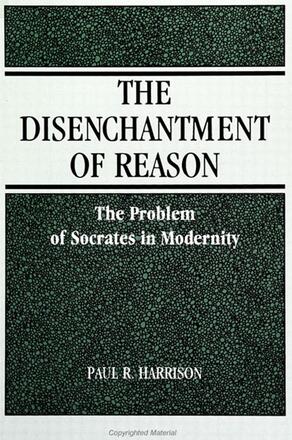
The Disenchantment of Reason
The Problem of Socrates in Modernity
Alternative formats available from:
Description
This book is an examination of nineteenth-century interpretations of Socrates by Hegel, Kierkegaard, and Nietzsche in the light of the contemporary debates over rationality in the modern world. These interpretations of Socrates have fundamentally influenced modern and postmodern thought, and their complexity reflects both an attraction to, and a fear of, the peculiarly modern concept of reason that Socrates is read as embodying.
Socrates is seen in this book as an emblematic figure through which the constitutive tensions between enlightenment and romanticism in modern thought can be understood. In the concluding chapter, Harrison analyzes the claims of discursive reason versus those of deconstruction in the postmodern conflict over the figure of Socrates.
Paul R. Harrison is Lecturer in the Sociology Department at La Trobe University, Victoria, Australia.
Reviews
"The author addresses a particularly important issue for nineteenth- and twentieth-century thought, i.e., disenchantment with reason. The use of Socrates as a vehicle for examining how reason is critically appropriated in the nineteenth century is an interesting and useful one." — Michael T. Gibbons, University of South Florida
"This book is very tightly argued and logical throughout. It is broad in scope, well-based in scholarly literature, and shows complete command of its subject. The author is outstanding in showing unexpected ramifications, the drawing of comparisons and contrasts." — Horst Mewes, University of Colorado, Boulder